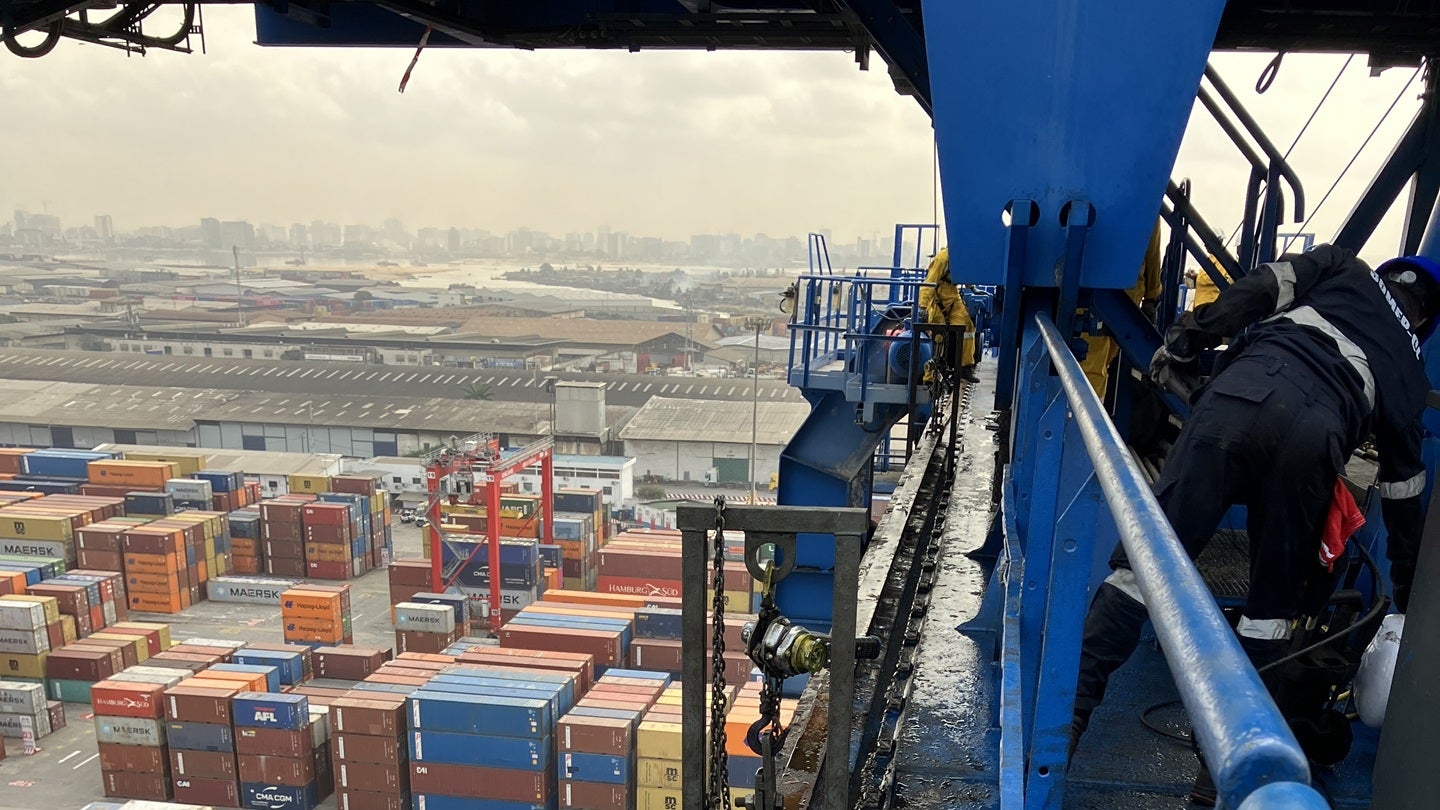Kalmar and AGL Enhance Port Operations in Abidjan with STS Crane Refurbishment

Kalmar, a leading provider of cargo-handling solutions, has successfully completed a significant refurbishment project in collaboration with Africa Global Logistics (AGL) at the Port of Abidjan in Ivory Coast. The project focused on the overhaul of two ship-to-shore (STS) cranes, a critical component of the terminal's operations. This initiative is part of Kalmar's Modernisation Services program, aimed at extending the lifespan and enhancing the performance of port equipment.
The scope of the project included the replacement of key components such as the forestay and pivot point bearings, trolley rails, short rails, and trolley and guide wheels. These upgrades are expected to significantly improve the cranes' efficiency and reliability, ensuring smoother operations at one of West Africa's busiest ports. The project, which was booked in Kalmar's Q4 2024 order intake, was completed in Q1 2025, demonstrating the company's ability to deliver complex projects on schedule.
In addition to the physical refurbishment, Kalmar also provided a comprehensive maintenance training program for the port technicians in Abidjan. This initiative is designed to empower the local team with the knowledge and skills necessary to maintain the cranes in optimal condition, thereby maximizing their operational lifespan. Peter Bos, Project Manager at Kalmar, highlighted the importance of this training, noting its role in sustaining the long-term performance of the equipment.
This project marks another milestone in the ongoing partnership between Kalmar and AGL, which spans several years and includes similar refurbishment projects in other African countries such as Congo and Benin. AGL, a subsidiary of MSC, is a major player in Africa's port logistics sector, operating 17 container terminals across the continent. The successful completion of the Abidjan project underscores the mutual trust and collaboration between the two companies, setting a positive precedent for future endeavors.



